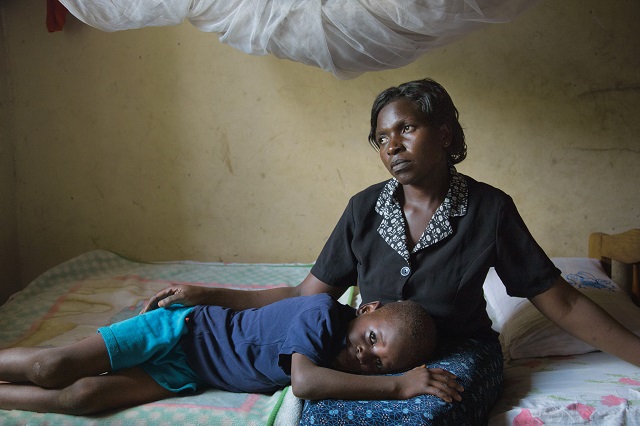Plight of widows in Zim

Gibson Mhaka
THE prospect of being a widow is one of the most dreaded and sensitive situations for any married woman in Zimbabwe and beyond.
This is so because losing a husband is not only about coping with grief, loneliness, or financial upheaval but also marks the beginning of a life of untold suffering and misery.
A living testimony is that of Mrs Elizabeth Mawere from Sauerstown in Bulawayo who lost her husband in 2002 and her in-laws blamed her for the death even though the circumstances of his death were well-known.
As if the blame was not enough, her in-laws went on to evict her from her marital home, rendering her homeless. That marked the beginning of Mrs Mawere’s untold misery.
She is one of the thousands of Zimbabwean women who, upon becoming widows, lose much more than just their husbands.
They stand to lose their source of livelihoods too after they would have been deprived of their property. Some even go through torturous practices like shaving their heads, being locked up for days in isolation sometimes in the company of the corpse and made to drink water used in cleaning the corpse. In some cases, a young widow can be obliged to become the wife of her former husband’s elder brother.
The world marked International Day for Widows on June 23 but there is no doubt that it went unnoticed by a lot of widows in the country.
It was set aside by the United Nations to recognise the plight of widows all over the world.
It also aims to address the outrageous cases of injustice meted out to widows and the role of poverty in their delicate state.
It is against this background that gender and human rights experts expressed concern over the “absence” of laws protecting the fundamental rights of widows, who suffer from discriminatory policies.
Many a time widows in Zimbabwe suffer humiliation and pain in the name of culture and there is need by the Government to empower them by acknowledging their fundamental rights.
According to a new report by Human Rights Watch titled, “You will Get Nothing, Violations of Property and Inheritance Rights of Widows in Zimbabwe”, in-laws often tell women shortly after the deaths of their husbands that the relatives intend to take over the homes and lands or other property where the husband and wife had lived for decades.
“The impact of property grabbing on widows is devastating,” said Ms Bethany Brown, a researcher at the Human Rights Watch and author of the report.
“Women whose property was taken from them spoke of homelessness, destitution and loss of livelihoods.”
A Bulawayo magistrate who chose to remain anonymous for professional reasons said widows in Zimbabwe experience a host of psycho-social challenges in their daily lives after the death of their husbands.
“These challenges, experienced at individual level, negatively impact on the widows’ ability to cope. Widows normally face insurmountable obstacles while defending their property or taking legal steps to reclaim it.
“Once in court, widows would be at a disadvantage without an official record of their marriage if it is a customary union. The situation is made worse by the courts which usually look to the in-laws – the very people who stand to gain to confirm the marriage, thereby putting widows at the mercy of their husband’s family,” said the magistrate.
The magistrate said most widows were also unaware of their legal status or their rights including entitlement to compensation or inheritance.
Ms Brown suggested: “The Government should take immediate steps to register all marriages, including customary unions, reform its marriage laws, and raise awareness of the property rights of widows.
“That would help protect thousands of women each year against the injustice of being summarily thrown out of their homes when they become widows”.
Fending off relatives while mourning their husbands and selling off productive assets like cattle to afford court fees and transportation are just some of the challenges. In other cases, distant relatives of the deceased show up years later and take over their property.
Another widow, Mrs Nomathemba Ndlovu said widowhood is not simply a change in marital status, but the end to economic, social, political, physical and emotional security.
“In the initial weeks and months after the death of my husband I had a lot of stress, confusion and fear. I have been neglected and humiliated in many ways by my late husband’s family members who were also threatening and physically intimidating me. I feel lonely with nobody to share life with,” said Mrs Ndlovu.
According to her, being a widow means one would be neglected by relatives, isolated by people, oppressed and denied certain rights by family members and society at large.
Many women do not know that they have a right to the property they owned with their spouses yet Section 80 (3) of the Constitution is clear on their rights. It states that “all laws, customs, traditions and cultural practices that infringe on the rights of women conferred by this constitution are void to the extent of infringement”.
Despite the fact that Zimbabwean laws such as the Deceased Person’s Family Maintenance Act and the Zimbabwe Administration of Estate Act largely favour surviving spouses regarding inheritance of property and Section 56 of the Constitution guarantees freedom from undue discrimination, many women continue to be dispossessed of matrimonial property and end up in dire situations after the death of a husband.
In many cases, relatives hide under the guise of traditional customs to grab property from widows.
A case in point is that of a Bulawayo woman Mrs Beauty Moyo who was stripped of her household property by her in-laws from Mberengwa with the help of a traditional chief.
Mrs Moyo was taken to Chief Mutevaidze’s court on allegations of conducting a tombstone unveiling ceremony for her late husband Mr Robbie Moyo without informing most of the family members and relatives.
She was ordered to pay a fine of a beast and nine goats or $750 to her brother-in-law Mr Felix Moyo.
A few months later, Felix reportedly proceeded to grab Mrs Moyo’s household property that included executive desks and chairs, a lounge suite, a television set and bed under the pretext of enforcing the chief’s ruling.
This was after the chief’s order was confirmed by a resident magistrate at Mberengwa courts resulting in warrants against her property in her Bulawayo home being issued.
Mrs Moyo, who was represented by the Zimbabwe Lawyers for Human Rights filed an application at the Bulawayo High Court challenging the chief’s ruling.
She argued that she had informed her other brother-in-law, Mr Zamani Edward Moyo about the ceremony. She also stated that there was nothing customary about the unveiling of a tombstone since it was a foreign practice adding that the unveiling of her husband’s tombstone was also in line with her constitutionally guaranteed freedom of conscience.
She further argued that her rights as a woman could not be subjected to customs and traditions that infringed on her constitutional entitlements.
Following the submissions Justice Nokuthula Moyo granted the application stopping the auctioning of the property.
She ruled that Chief Mutevaidze had no jurisdiction to hear the matter as the widow is a Christian whose life is not dictated by traditional customs.
Although Mrs Moyo won the court order nullifying the chief’s ruling, many other Zimbabwean women are still struggling with patriarchal traditions that leave them vulnerable after the death of a husband. Traditional customs are being used to suppress women especially in the rural areas.
A senior Bulawayo legal practitioner Ms Nikiwe Tshabalala said there was need to reduce both costs and procedures of the registration of estates which is undoubtedly a big challenge to most widows.
“Although the Estate is registered, the first problem encountered by widows is to look for money to pay for the advertisement of that Estate in order to make it known by all persons having claims against it and that all persons indebted to it make payment without delay.
“Preparation of distribution accounts is the next challenging stage. There is a format needed to prepare them and this calls for a widow to look for an expert to do the preparation and that demands money. As if that is not enough, they also have to pay for the advertisement of those distribution accounts and pay the Estate duty which is calculated at four percent of the net asset value of the Estate.
“Failure to pay that money which is usually a challenge for most widows, the executor is allowed to sell the property and deduct the duty from the net asset value of the Estate.
“In the event that the Estate is not registered the Master of the High Court appoints a neutral executor who is again allowed to charge his or her services at four percent of the net asset value of the Estate,” said Ms Tshabalala.
Another challenge, Ms Tshabalala said was that most properties were not registered in the women’s names despite the fact they would have worked together with their husbands to acquire them.
She said it then becomes a challenge when a husband dies as relatives believe the wife never contributed anything to the acquiring that property.









Comments